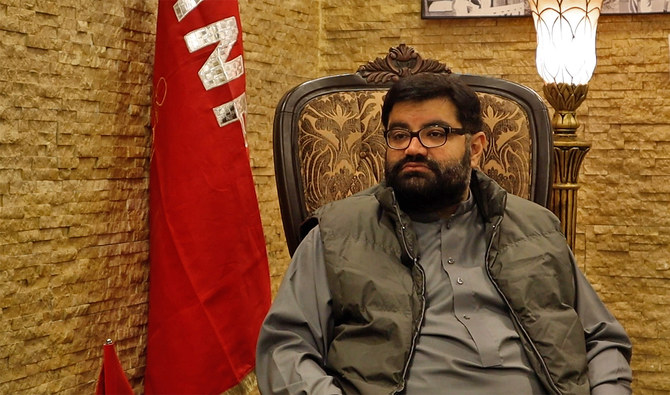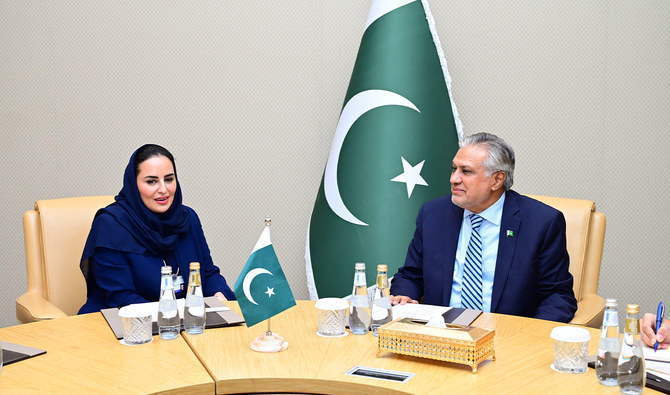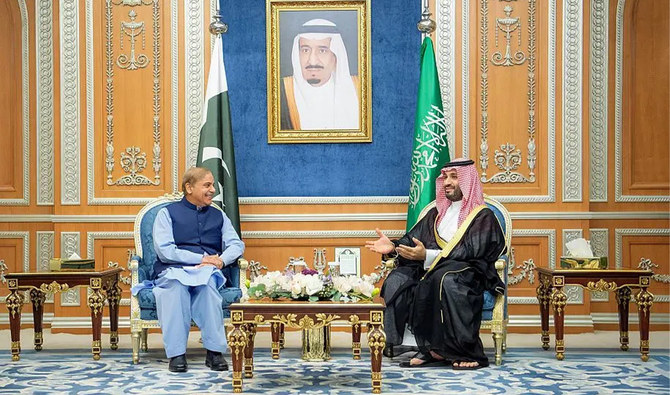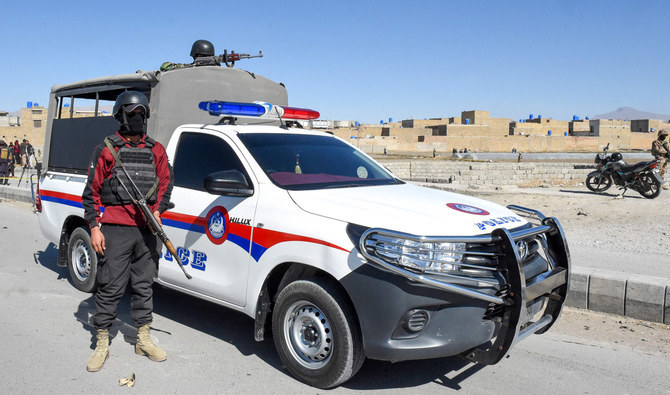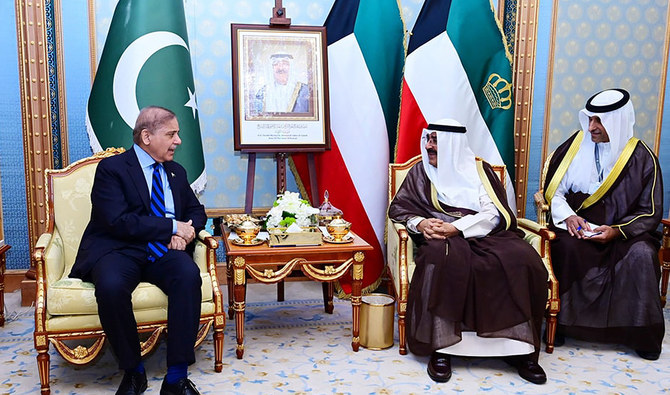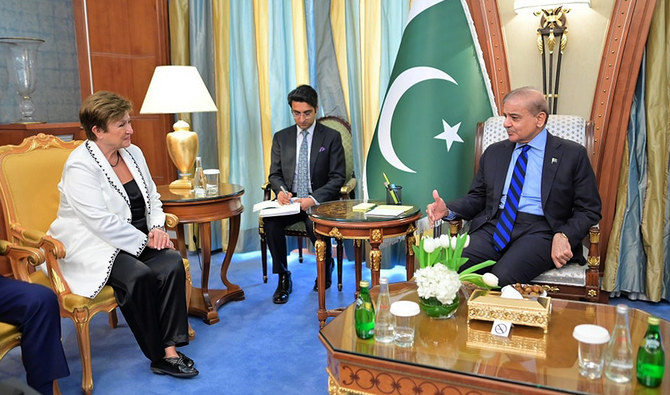PESHAWAR: As Pakistan inches toward national polls scheduled for February 8, the leader of the prominent Pashtun nationalist Awami National Party (ANP) said on Wednesday that the party would not let the province “slip” out of its hands.
Formed officially in 1986, the ANP is a left-wing, secular, Pashtun nationalist party that has traditionally drawn strength mainly from the Pashtun-majority areas of Khyber Pakhtunkhwa (KP) in northwestern Pakistan. It has also remained politically active in the urban areas of the country’s southern Sindh province.
The party formed the provincial government in KP in 2008 but since then, its fortunes have taken a turn for the worse. The Pakistan Tehreek-e-Insaf (PTI), led by former cricket star Imran Khan, has bagged the most seats in KP in the 2013 and 2018 elections. The ANP, meanwhile, managed to secure only 11 seats in the 2018 elections. Two of these were reserved seats for women.
In the by-elections held on Sept. 25, 2022, the ANP lost both of its seats to Imran Khan. Despite the setbacks, the head of ANP’s KP chapter, Aimal Wali Khan, vows not to let the northwestern province “slip” out of the party’s grasp.
“No, as far as my politics and democracy is concerned, Khyber Pakhtunkhwa will never slip out of ANP’s hands,” Khan told Arab News in an exclusive interview. “Never, it can never happen.”
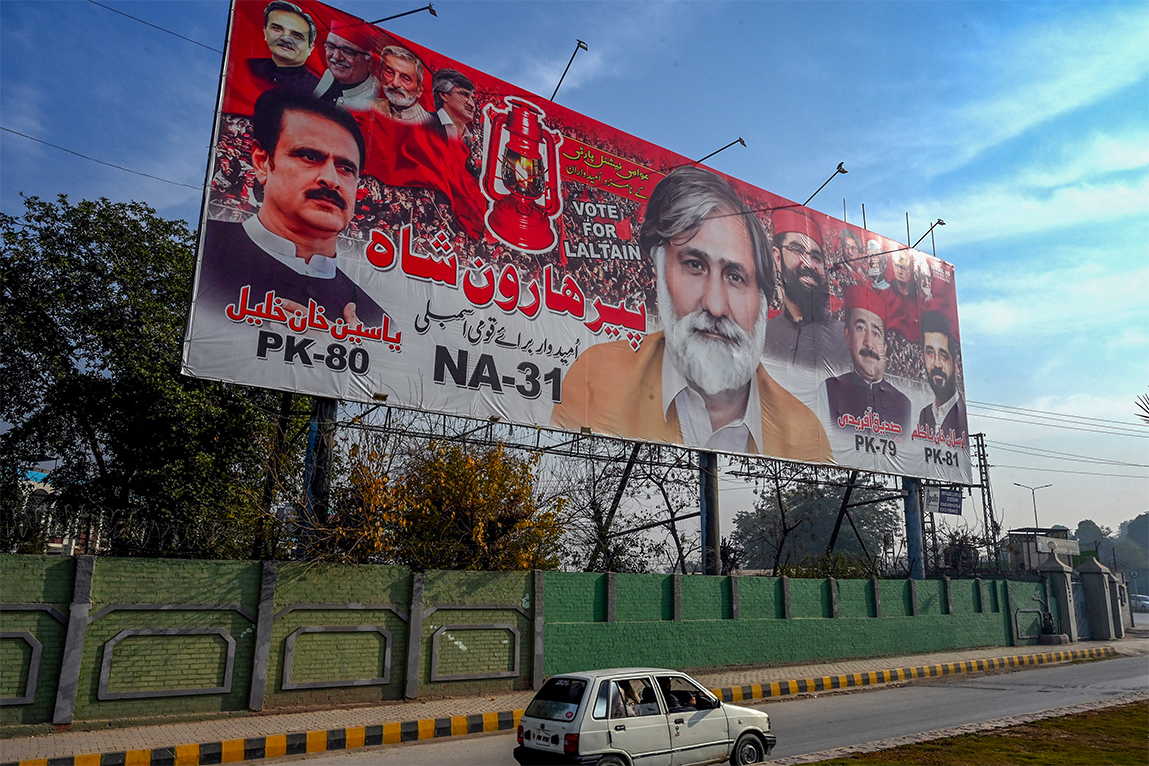
A car passes by an election billboard along a road in Peshawar on December 22, 2023, ahead of Pakistan's general elections. (AFP)
Khan said the party was not formed by Pakistan’s powerful military or at the behest of foreign powers. He said it traces its origins to the people of Swabi, Buner, Dera Ismail Khan, and other areas in northwestern Pakistan.
He, however, admitted that the ANP could suffer another setback if elections were not held in a free, fair, and transparent manner.
“ANP is something from the public, KP will never slip out of its hands,” Khan said. “If there are manipulative elections, things will slip away.”
Khan said during a press conference last month that police and intelligence agencies had informed him about dangers to his life. Maulana Fazlur Rehman, the head of Pakistan’s prominent Jamiat-e-Ulama-e-Islam (JUI-F) religious party said earlier this week that the government should consider advancing the election date. Rehman’s statement came after his convoy was targeted in a shooting incident on Sunday.
Khan, however, did not speak in favor of polls being delayed further.
“We are still clear, we want elections to be held on time,” he said. “My mindset and my party say that it is the need of the hour, and to have free and fair elections as soon as possible.”
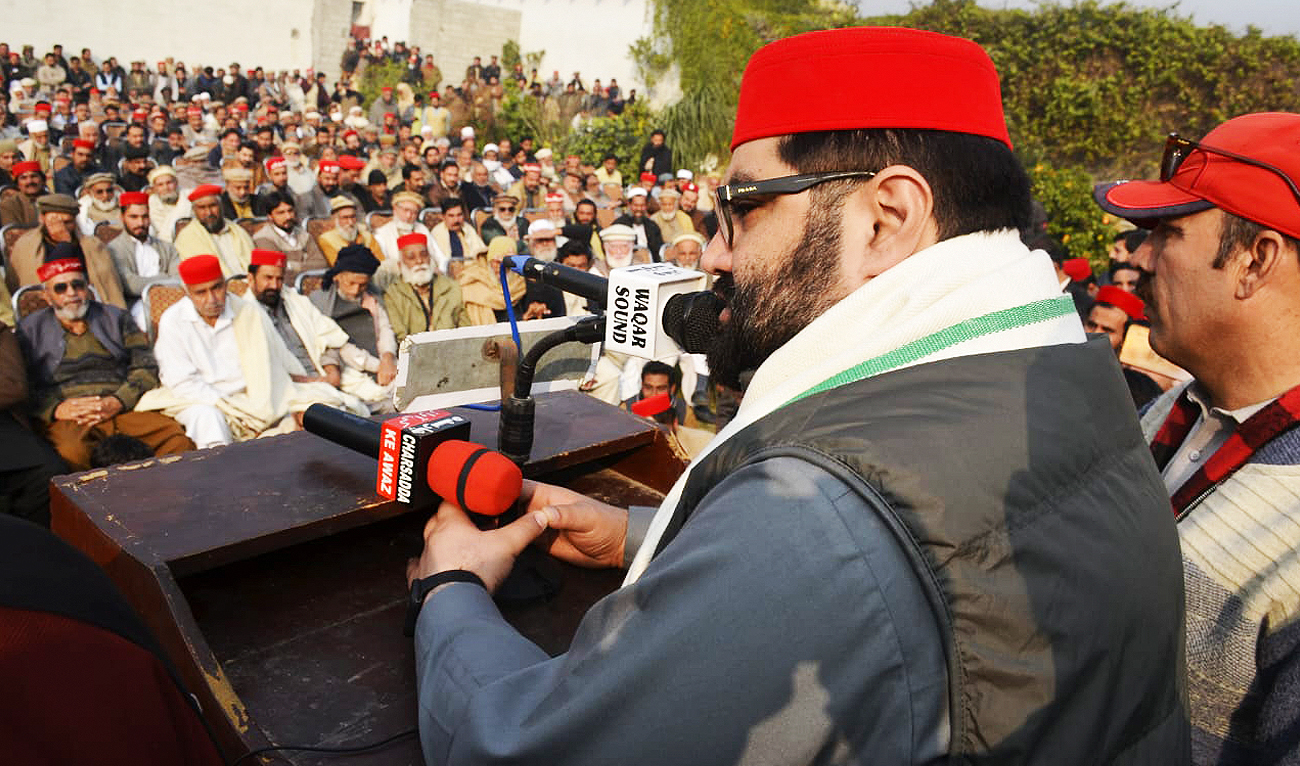
In this photo, Pakistan's prominent Pashtun nationalist Awami National Party leader, Aimal Wali Khan, addresses the election rally in the northwestern Pakistani district of Charsadda on January 2, 2024, ahead of the national polls on February 8. (Photo courtesy: X/@ANPMarkaz)
When asked about a possible electoral alliance between the secular ANP and the right-wing JUI-F, Khan said electoral alliances are “never considered on mindset.”
“Electoral alliances are for gaining numbers, political alliances are for mindsets,” he explained. “I have no alliances right now, not even a single seat adjustment has been done. I am open to it.”
When asked whether the ANP was in favor of resettling Pakistani Taliban fighters or TTP militants in northwestern Pakistan, Khan said:
“No and never, I never was, I never am, and I never will be.”
The TTP has carried out some of the deadliest attacks against Pakistan’s security forces and civilians over the past decade-and-a-half. The banned outfit is a separate group from the Afghan Taliban but have sworn allegiance to them.
The ANP suffered some of the deadliest attacks at the hands of the TTP, especially in the run-up to the general elections of 2013 and 2018. At least 20 people, including prominent ANP leader Haroon Bilour, were killed when a suicide bomber struck the party’s election rally in Peshawar in July 2018.
Khan said there must be rule of law in a country and every citizen must abide by it.
“Terrorists are terrorists, and they must be dealt [with] like terrorists,” he said, adding that Pakistan had repeatedly “tried and tested” holding talks with militants for peace but failed.
In response to a question, the ANP leader said he did not recognize the Taliban-led government in Afghanistan.
“The only thing to be accepted is a government by the people,” Khan said. “I cannot accept any government which is by gun, which is by brutality and which is by any other power.”




